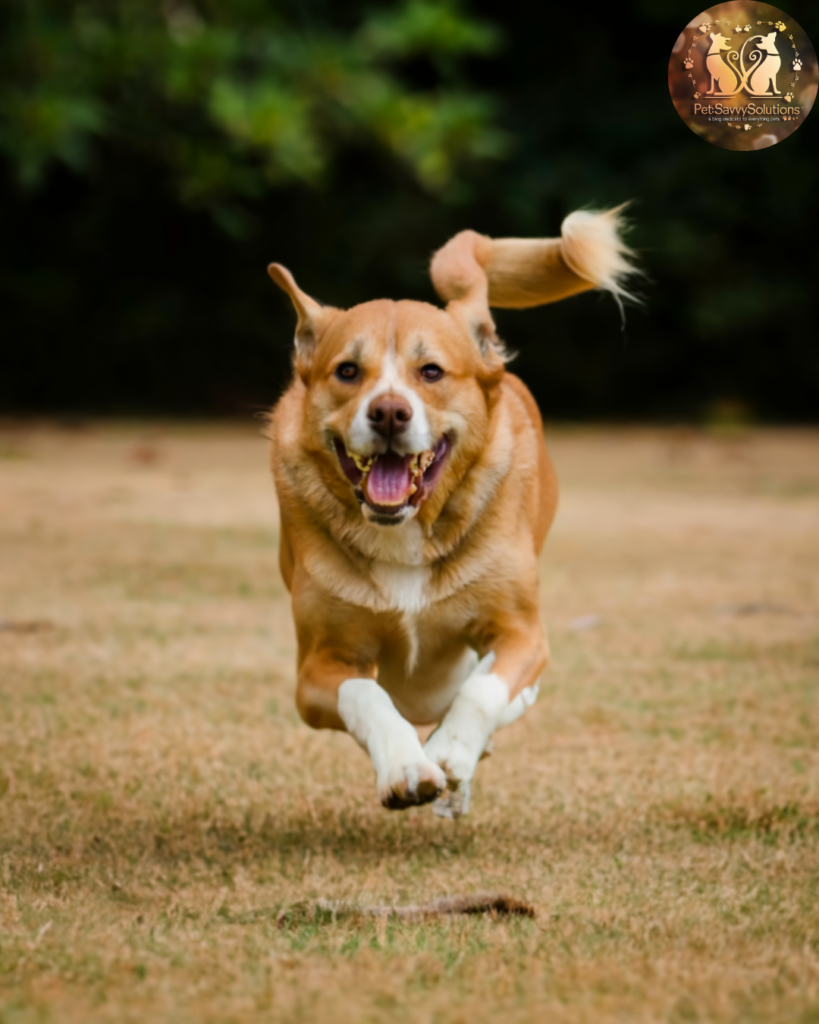Dogs are more than just pets; they are cherished companions who bring joy, energy, and a sense of adventure into our lives. Their playful antics, boundless enthusiasm, and unwavering loyalty make them a source of endless entertainment and affection. In this article, we delve into the world of playful pups, highlighting dogs in action, exploring the benefits of play, and providing tips for keeping your furry friend engaged and happy. Along the way, we’ll share heartwarming stories, examine the science behind canine play behavior, and offer practical advice for dog owners.
The Importance of Play for Dogs
Play is not just a fun activity for dogs; it is an essential part of their physical, mental, and emotional well-being. Understanding the significance of play can help dog owners ensure their pets lead happy and healthy lives.
Physical Exercise and Health
Firstly, play provides dogs with the physical exercise they need to stay healthy. Activities such as running, jumping, fetching, and wrestling help maintain their fitness levels, improve cardiovascular health, and strengthen muscles. Regular play also prevents obesity and related health issues, ensuring a longer, happier life for your canine companion. For more on the benefits of physical exercise for dogs, check out this article from the American Kennel Club.
Mental Stimulation

In addition to physical exercise, play stimulates a dog’s mind. Puzzle toys, interactive games, and training sessions challenge their cognitive abilities, keeping their brains sharp. Mental stimulation is especially important for intelligent breeds like Border Collies and German Shepherds, who thrive on problem-solving activities. Learn more about the importance of mental stimulation for dogs in this PetMD article.
Socialization
Playtime is also a great opportunity for dogs to socialize with other dogs and humans. Social interactions during play help dogs develop proper behavior, reduce aggression, and enhance their communication skills. Well-socialized dogs are more confident and less likely to exhibit fear or anxiety in new situations. For more information on the importance of socialization, visit ASPCA’s guide.
Emotional Well-being
Moreover, play has a profound impact on a dog’s emotional well-being. It reduces stress, alleviates boredom, and promotes feelings of happiness and contentment. Dogs that engage in regular play are less likely to develop behavioral problems such as excessive barking, chewing, or digging. For insights on managing dog behavior through play, explore this resource.
Strengthening the Bond
Playing with your dog strengthens the bond between you and your furry friend. It fosters trust, cooperation, and a sense of companionship. The joy and laughter shared during play create lasting memories and deepen the connection between pet and owner. Read more about bonding with your dog in this article from The Spruce Pets.
Types of Play: Finding the Right Activities for Your Dog
Dogs have diverse play styles and preferences. Understanding your dog’s personality and energy level is crucial in selecting the right activities. Here are some popular types of play and how they benefit different dogs:
Fetch and Retrieve
Fetch is a classic game that most dogs love. It satisfies their natural instinct to chase and retrieve objects. Whether it’s a tennis ball, frisbee, or stick, playing fetch provides excellent exercise and mental stimulation. This game is especially popular among retriever breeds like Labradors and Golden Retrievers. For tips on playing fetch, visit Petfinder’s guide.
Tug-of-War
Tug-of-war is an interactive game that allows dogs to use their strength and engage in a friendly competition. It’s an excellent way to build trust and improve impulse control. However, it’s important to establish rules and ensure that the game remains safe and controlled. For tips on playing tug-of-war safely, visit this ASPCA guide.
Hide and Seek
Hide and seek is a fun and mentally stimulating game that taps into a dog’s natural hunting instincts. treats or toys around the house or yard and encourage your dog to find them. This game is great for dogs that enjoy sniffing and tracking. For more creative play ideas, check out The Bark’s suggestions.
Agility Training
Agility training involves navigating an obstacle course that includes jumps, tunnels, weave poles, and more. It’s a fantastic way to provide both physical exercise and mental stimulation. Agility training is particularly beneficial for high-energy breeds like Border Collies and Australian Shepherds. Learn more about agility training from the American Kennel Club.
Puzzle Toys
Puzzle toys are designed to challenge a dog’s problem-solving skills. These toys often require dogs to manipulate objects or figure out how to access hidden treats. Puzzle toys are ideal for keeping dogs mentally engaged, especially when they are left alone at home. Check out this list of top puzzle toys from Rover.
Water Play
Many dogs love water, making swimming and water games a great option for play. Swimming is a low-impact exercise that is easy on the joints and perfect for breeds like Retrievers and Spaniels. Water play can include retrieving toys from a pool or playing in a sprinkler. For tips on water safety for dogs, visit American Red Cross.
Social Play with Other Dogs
Social play with other dogs is essential for a well-rounded dog. Visits to the dog park or playdates with other dogs allow your pup to burn off energy and develop social skills. It’s important to monitor play to ensure it remains positive and non-aggressive. For more on dog park etiquette, read this article from VCA Hospitals.
Heartwarming Stories: Dogs in Action
Nothing captures the essence of playful pups better than heartwarming stories of dogs in action. Here are a few tales that highlight the joy and excitement of canine play:

Max and His Ball
Max, a Golden Retriever, has an unwavering love for his tennis ball. Every day, he eagerly waits by the door, tail wagging, for his owner to take him to the park. As soon as the ball is thrown, Max races after it with boundless enthusiasm. His joyful barks and triumphant returns never fail to bring a smile to everyone’s face. Max’s story is a testament to the simple yet profound happiness that a game of fetch can bring to a dog.
Bella’s Agility Triumph
Bella, a Border Collie, discovered her passion for agility training at a young age. With her sharp mind and boundless energy, she quickly mastered the obstacle course. Bella’s owner entered her in local agility competitions, where she consistently impressed the judges with her speed and precision. Bella’s agility triumphs showcase the incredible bond and teamwork that can be achieved through play.
Rocky and His Tug-of-War Victory
Rocky, a determined Bulldog, loves nothing more than a game of tug-of-war. One day, during a family gathering, Rocky’s strength and tenacity were put to the test. He faced off against his owner and several family members in a spirited game of tug-of-war. Despite his small size, Rocky’s determination won the day, and he emerged victorious, much to the delight of everyone present.
Daisy’s Hide and Seek Adventure
Daisy, a curious Beagle, excels at the game of hide and seek. Her owner hides treats around the house, and Daisy uses her keen sense of smell to find them. One day, Daisy’s owner decided to make the game even more challenging by hiding treats in unusual places. To everyone’s amazement, Daisy found every single treat, proving that her hunting instincts were second to none.
The Science Behind Canine Play Behavior
Understanding the science behind canine play behavior can deepen our appreciation for the joy and benefits it brings. Several theories explain why dogs engage in play and how it contributes to their development.
Play as Practice
One theory suggests that play serves as practice for real-life skills. For example, chasing, pouncing, and wrestling during play mimic hunting behaviors. These activities help puppies develop coordination, strength, and social skills that are crucial for survival in the wild. For more on this theory, explore this article from The Spruce Pets.
Play and Social Bonds
Another theory posits that play strengthens social bonds among dogs. Playful interactions teach dogs about communication, cooperation, and hierarchy. Puppies learn bite inhibition, body language, and other important social cues through play, which helps them navigate complex social structures. This article from Psychology Today delves deeper into the social aspects of play.
Play and Stress Relief
Additionally, play is believed to be a form of stress relief for dogs. Engaging in playful activities releases endorphins, which reduce stress and promote feelings of happiness. Play also provides an outlet for excess energy
Internal Links:
External Links:



